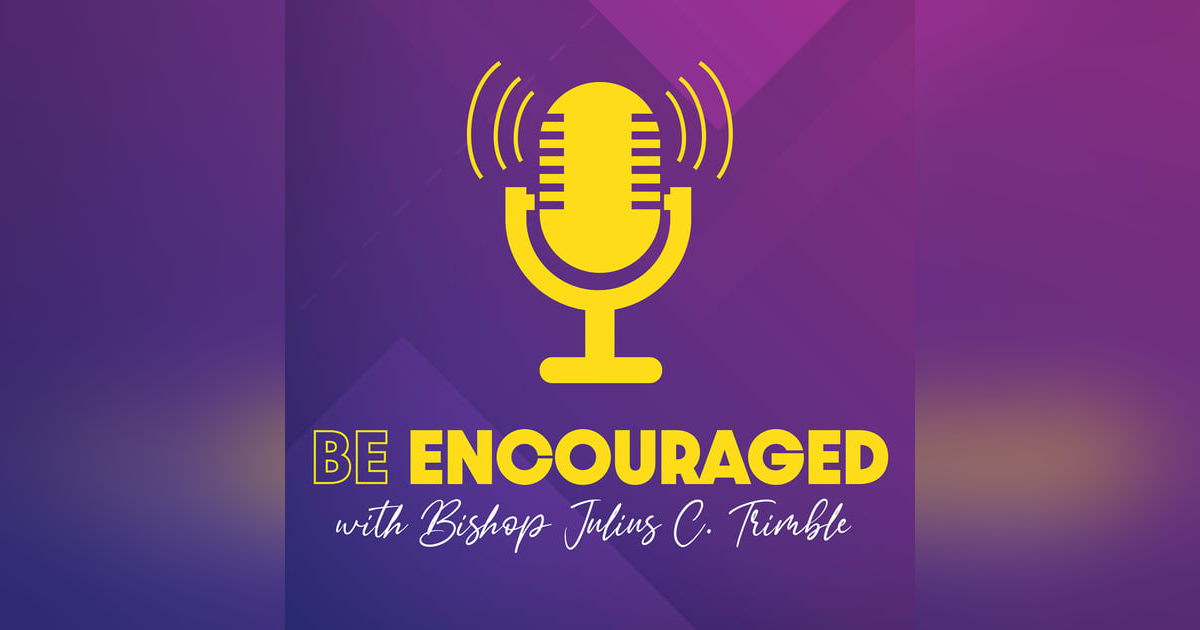Breaking the Stigma: Encouraging Mental Health Ministry in Faith Communities with Dr. Sarah Griffith Lund, Author of Blessed Youth: Breaking the Silence about Mental Illness with Children and Teens (Part 1)

Bishop Julius C. Trimble is the Resident Bishop of the Indiana Area of the United Methodist Church.
Bishop Trimble has the personal mission to encourage all people with the love of Jesus Christ to rise to their highest potential. It is his commitment to his personal mission that led Bishop Trimble to create the “To Be Encouraged” Podcast along with co-host Rev.Dr. Brad Miller.
Bishop Trimble says, “I am compelled by Jesus to share with you an encouraging word or two about Jesus, theology, the Bible, the pandemic, the environment, racism, voting rights, human sexuality, and the state of the United Methodist Church.”
To Be Encouraged with Bishop Julius C. Trimble is to be published weekly and is available at www.tobeencouraged.com and all the podcast directories.
https://archive.inumc.org/bishop/
In episode 057 of To Be Encouraged with Bishop Julius C. Trimble, the guest is Reverend Dr. Sarah Griffith Lund, (https://sarahgriffithlund.com/) an ordained minister in Disciples of Christ and United Church of Christ. Lund is an author of several books on mental health, including “Blessed Youth: Breaking the Silence About Mental Illness with Children and Teens.”
Bishop Trimble and Lund discuss the importance of mental health awareness and advocacy in faith communities.
Bishop Trimble shares about his personal connection with Sarah related to their ecumenical witness in Greater Indianapolis but also wants to discuss Sarah's writing on mental health, specifically her book, “Blessed Youth.” Trimble was emotionally pulled into the book while reading it and believes it would be suited for community reading. Bishop Trimble speaks about his mother-in-law who lived with them for 20 years due to her mental illness, but the Bishop’s children did not know about it because she received excellent care and support.
Bishop Trimble believes that being surrounded by support makes a significant difference for those with mental illness.
Lund discusses her inspiration for writing "Blessed Youth" and highlights the importance of understanding mental health as a form of physical health. Lund shares the importance of mental health ministry as an opportunity to show the love of Jesus to the community and provide resources available, such as a free study guide from Blessed Youth on the Chalice Press website. Bishop Trimble discusses mental health ministry in the church he once served and shares the benefits of having a mental health-friendly church. Lund emphasizes the need for lay people in starting a mental health ministry in their faith community and eliminating any barriers to participation.
Additionally, they discuss the Surgeon General's advisory related to the spike in suicides in youth and highlight the importance of strengthening spiritual connections to God and one another to prevent deaths of despair. Finally, they explore the stigma and shame often preventing people from talking about mental health and seeking help for mental illness and discuss the importance of shifting attitudes towards mental health so that it is viewed as part of overall health, much like dental hygiene.
Episode 057 with Dr. Sarah Griffith Lund is Part one of a two Part Episode featuring a discussion about Dr. Lund's book "Blessed Youth." Part 2 will be Episode 058 we be about "Starting a Mental Health Movement in your Church and Community and will be available at www.ToBeEncouraged.com.
Dr. Sarah Griffith Lund can be contacted about her books and speaking opportunities at:
https://sarahgriffithlund.com/
Her Ministry is Blessed Mind


